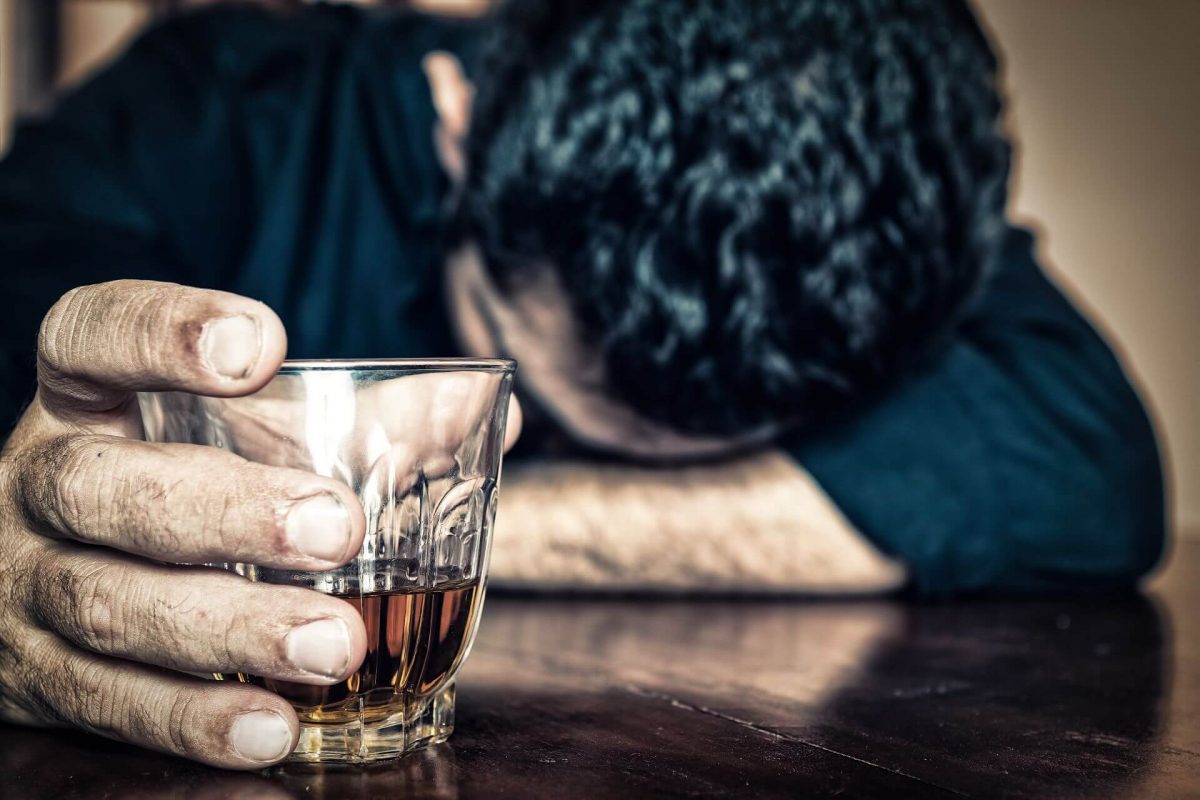Getting sober is the physical act of quitting drugs or alcohol, giving your body time to rid itself of harmful substances and restoring the natural balance of your brain structure and function. It’s commonly called “getting clean,” and usually involves medical detox to purge yourself of alcohol or drugs that have wreaked havoc on your wellbeing.
Living sober is a lifelong commitment to living a life free of alcohol or drugs and a life with greater purpose and meaning. It requires what the experts call a ‘psychic change’ to overcome the compulsion to seek substances and maintain sobriety.
A psychic change allows you to rediscover yourself, adjust your attitude and outlook, respond to situations differently, and take control of your life choices. It is more of an emotional and spiritual re-awakening than the physical act of quitting drugs or alcohol. Experiencing a psychic change is essential to addiction recovery. But more about that later.
What is sobriety?

The ancient meaning of sober (14th century) was “moderate in desires or actions, temperate, restrained”. The word sober comes from the Greek work sophron or sophrosyne, usually translated as temperance, moderation, prudence, of sound mind, self-control and self-restraint. Sophrosyne is derived from two famous Greek sayings: nothing in excess and know thyself.
Look at modern-day meanings of sober that a Google search will bring up:
- completely refraining from a substance or particular behaviour
- not drunk, high, intoxicated
- free from excess, extravagance or exaggeration
- quiet or sedate in demeanour
- habitually temperate
- serious, solemn
- rational, sane
- appropriately solemn, serious, not giddy
- reduce to a quiet condition
It doesn’t paint a picture of a fun-loving, happy-go-lucky person, does it?
Instead, it exacerbates the stigma that someone who struggles with sobriety is a disruptive force, a ‘bad person’ who misbehaves and needs to get their life under control to be viewed as sane, serious and normal.
The notion of sobriety does not take into account that addiction is a chronic, relapsing brain disease. You can stop using drugs or alcohol, but that doesn’t fix the problem. If you are struggling with substance use disorder (addiction), you need to focus on recovery.
Sobriety is a critical element of addiction recovery, but it is a short-term state that is difficult to maintain without a complete psychic change. You need to address the root cause of your addiction and work on healing your mind, body and soul; otherwise, you are always one drink, snort or pill away from relapsing.
What is recovery?

Recovery is a process that starts with getting sober, but it is a long, challenging road you travel to heal your whole self. Addiction is a chronic brain disease, and you can think of recovery as being in remission.
When you are sober, you have stopped using drugs or alcohol. In recovery, you focus on the underlying issues that lead to the addiction and use tools to overcome physical and emotional triggers that may lead to a relapse.
Recovery involves an integrated addiction treatment Program and aftercare support, combining medical detox, medicine, psychotherapy, holistic therapies and healthy lifestyle choices that are all essential if you hope to conquer your addiction.
You live sober a day, week, month at a time because substance use disorder – addiction – is a disease with no straightforward cure. By the time you have moved through the stages of tolerance and dependency to addiction, changes to your brain chemistry and function are permanent.
Addiction is a complex brain disease caused by a compulsion to seek out drugs or alcohol despite harmful consequences. The relapse rate after “getting clean” is high (40 to 60 percent) because addiction is a neurological disease and not a behavioural problem.
Recovery is more than just not using alcohol or drugs. It is a deep, complex and challenging journey that leads to your entire life being transformed.
Psychic change: what does this mean?

The co-founders of Alcoholics Anonymous, Dr Bob Smith and Bill Wilson, were adamant an entire psychic change is “an absolute requirement for a full recovery.” They described the place that addiction takes you to as “restless, irritable and discontent” and that the only way to break free of that dark space is permanent life-altering transformational change.
The basis of your psychic change can be rooted in religious, spiritual or personal faith. By whatever means, find the inner strength and power to make small changes that add up to a big reward; a more joyous, healthy and fulfilling life.
There are eight ways you achieve a psychic change in recovery:
Get sober
Stop using drugs or consuming alcohol. You might need to go to a hospital for medical detox, depending on what substances you use and how long you have lived with an active addiction.
Avoid going ‘cold turkey’ because that is dangerous, and ‘white knuckling’ is not often successful. You will experience uncomfortable, unpleasant withdrawal symptoms that will get stronger each day until you give up and relapse. You need clinical, specialised care to get sober.
Be open and honest about your addiction
Addiction is a very lonely experience. No doubt, you’ve done your best to hide your addiction from family, friends and colleagues and have carried the burden of guilt, shame and self-loathing for a long time. It’s time to overcome your fear of being judged or rejected and be open and honest with your loved ones about the disease.
Ask for help
There is no shame in admitting you need help. It takes great courage to seek addiction treatment, and it reaps great reward. You’ll find your loved ones will be relieved that you are finally ready to turn your life around.
Choose the right person to help you get the best treatment for your needs. Speak to someone who has struggled with addiction and is in recovery or a doctor or an addiction counsellor at a rehab facility. Avoid relying on enablers, someone whose behaviour allows you to continue self-destructive patterns of behaviour.
Identify the root cause of your addiction
You’ll benefit immensely from talking to a qualified addiction psychotherapist in individual or group therapy sessions. You can do this at an inpatient or outpatient addiction treatment centre. Many advanced talk therapy techniques can help you better understand your emotions, adjust your outlook, identify addiction triggers, cope with anxiety and depression, process past trauma, and provide tools to help you live sober.
Talk therapy is essential for recovery. Getting sober is putting a plaster on a wound; talk therapy is finding out why you have the injury and providing the tools to heal it.
Change your behaviour
Addiction changes your behaviour, making you secretive, suspicious, manipulative, volatile, depressed, anxious, and willing to risk everything to satisfy your cravings. Living sober is only possible if you acknowledge your behaviour while struggling with an active addiction and how it affected your physical and mental health and your loved ones. Strive to do better every day in recovery, and you’ll find your self-esteem and sense of self-worth will improve dramatically.
Find new friends
Letting go of friends from your ‘old life’ is challenging but essential in the recovery process. You need to rid yourself of bad influences and toxic people who may enable addictive behaviour and put you at risk of relapse. Think about it. Were they really good friends or people who manipulated you for their own needs?
You must take a hard look at family, friends and colleagues and identify who enabled your addiction. Even if they had the best of intentions, these are not people you want in your life if you hope to live a life free of drugs or alcohol.
Get active and healthy
Regular exercise, fun activities and a healthy, balanced diet are essential for addiction recovery. Getting fit and feeling strong and vigorous after a long period of ill physical and mental health boosts your confidence and self-esteem, keeps you busy and provides a structured routine that you need to live sober.
Pay it forward
Simple acts of kindness and selflessness are incredibly rewarding, and paying it forward through service is a cornerstone of recovery. Service is the 12th step in the widely-used AA Program that provides a set of principles spiritual in nature to overcome addiction to drugs and alcohol.
“Having had a spiritual awakening as the result of these steps, we tried to carry this message to other people living with an addiction and to practice these principles in all our affairs.”
You can sponsor a recovering addict, volunteer at a charity event, chair a group meeting, or speak about your addiction journey at schools or community halls.
We’re here to help.
Contact us today if you’d like a confidential and free chat with one of our qualified mental health and addiction care professionals at White River Manor in South Africa.

